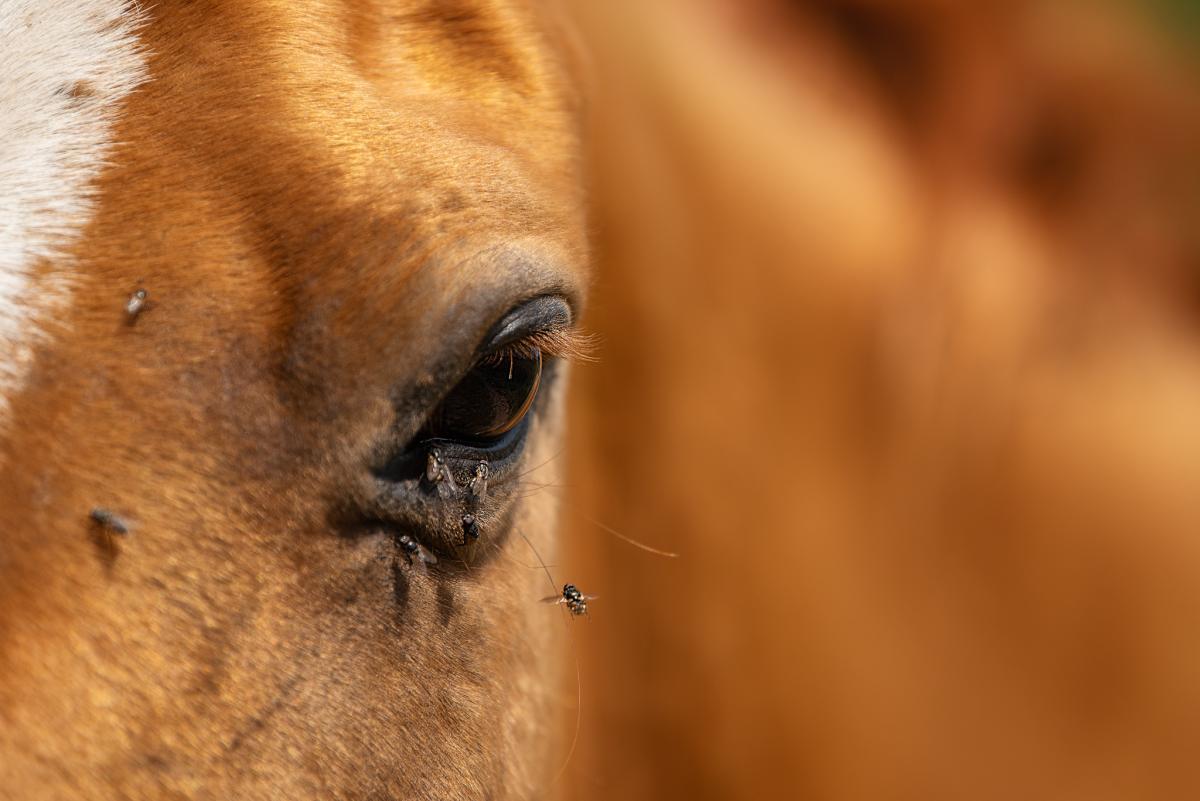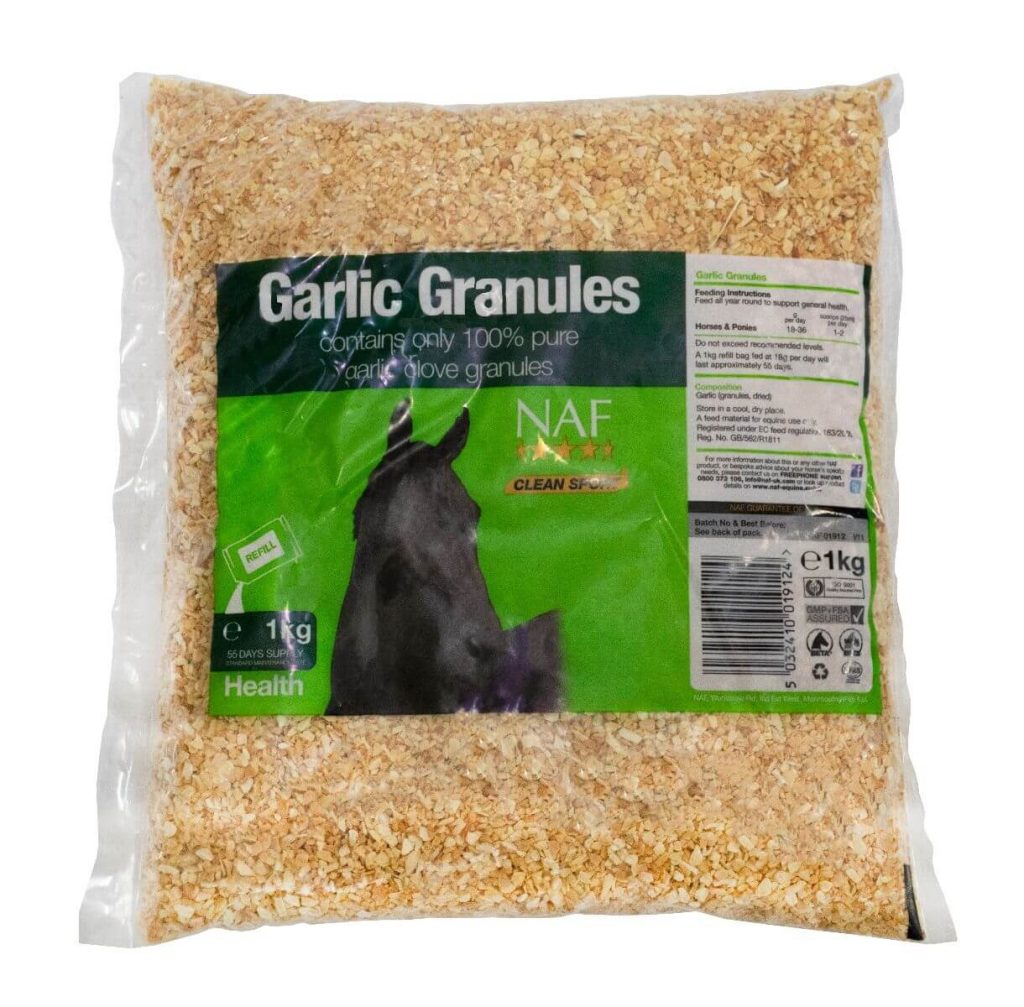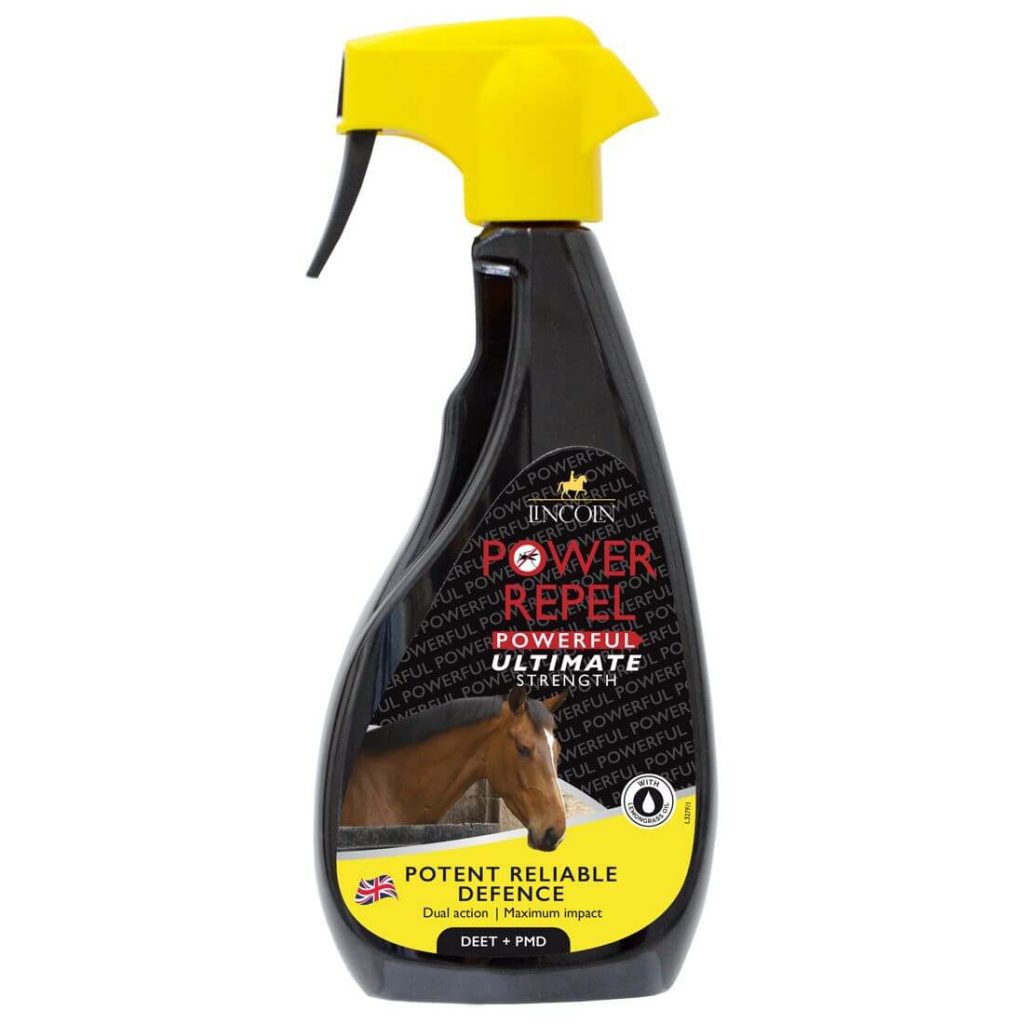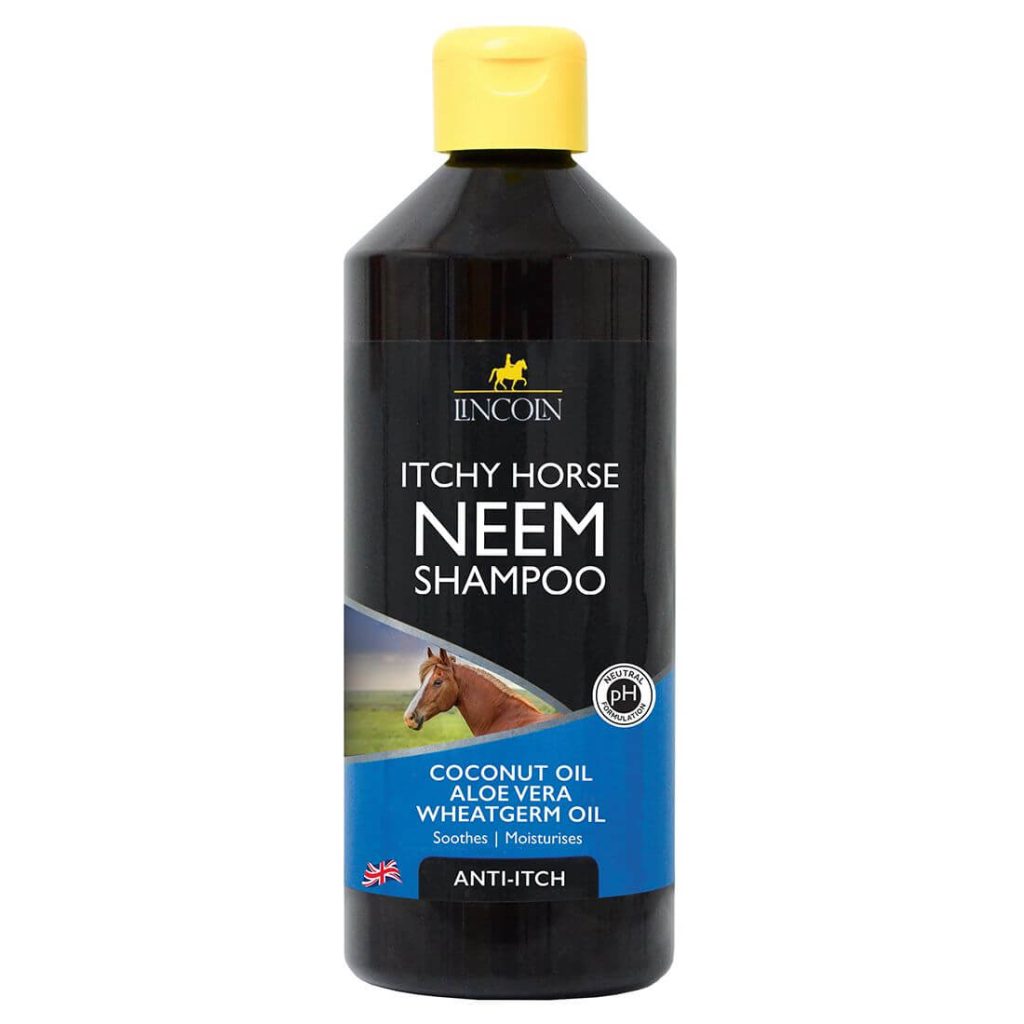
As the warmer months roll in, so do the flies, and for horse owners, this time of year can be a real challenge. Flies and biting insects irritate horses and can lead to more serious issues such as sweet itch, skin infections, or stress. Whether your horse is turned out, stabled, or working during horse fly season, a solid fly control strategy is essential to keep them healthy and content.
In this blog, we’ll explore a few practical and effective ways to help control flies around your horse, including the use of garlic granules, fly repellents, and soothing shampoos for itchy skin.
Why do horse flies bite?
Horse flies are among the most troublesome insects for equines during the summer months. Unlike common houseflies, horse flies bite to feed on blood, which they require for reproduction. It’s only the female horse flies that bite by using sharp, blade-like mouthparts to cut the skin and lap up the blood. This method makes their bites especially painful and irritating for horses (and humans alike).
Horse flies are attracted to movement, heat, and carbon dioxide, which makes horses particularly vulnerable, especially when they’re exercising or out in the sun. Their bites often cause localised swelling, itching, and inflammation, and in some cases, repeated bites can lead to allergic reactions or secondary skin infections.
Because horse flies are persistent and not easily deterred, effective prevention and prompt treatment of bites is crucial to your horse’s comfort and wellbeing during fly season.
Controlling flies around horses
Horses often react to flies by stamping, swishing their tails, and rubbing against fences or walls, leading to skin abrasions and even injury. Persistent biting insects can sometimes transmit diseases or cause allergic reactions. To effectively control flies, you’ll want to combine prevention, repellents, and soothing treatments. This multi-pronged approach is key to managing the problem through the peak fly season.

Garlic granules for natural fly deterrence
Garlic has long been used as a natural fly repellent in horses. When fed in the right amounts, garlic granules can help make your horse less appealing to biting insects by producing an odour through the skin that deters flies.
Garlic is also thought to support the immune system and respiratory health. However, it’s important to use it responsibly and ensure you choose equine-formulated garlic supplements and follow dosage instructions carefully to avoid any negative effects from over-supplementation.
Horse fly repellents: A frontline defence

One of the simplest and most immediate ways to protect your horse is with a quality fly repellent. Available in sprays, gels, and roll-ons, fly repellents are designed to create a barrier between your horse and pesky insects.
When choosing a repellent, look for formulations that offer long-lasting protection and are suitable for sensitive skin.
Some are designed to target specific insects like midges or horseflies, so you may want to tailor your choice depending on the fly population in your area. Applying fly repellent before turnout, exercise, or travel can make a big difference to your horse’s comfort and focus.
Don't forget to also consider fly masks and rugs as these offer physical protection, particularly for highly sensitive horses or prone to rubbing.
Itchy horse shampoo for soothing insect bites
Despite your best efforts, your horse may still end up with some bites or irritated skin, especially if they suffer from conditions like sweet itch. In these cases, a soothing itchy horse shampoo can help provide relief.
Choose a shampoo specifically formulated for horses with sensitive or irritated skin. Look for products that include ingredients like tea tree, aloe vera, or chamomile, which can calm inflammation and promote healing. Regular washing helps to remove allergens, dirt, and insect saliva that might be aggravating the skin—and also provides a great opportunity to check for any new bites or broken skin.
If you’re unsure which products are right for your horse or how best to use them, our team of Animal Health Experts are here to help.

